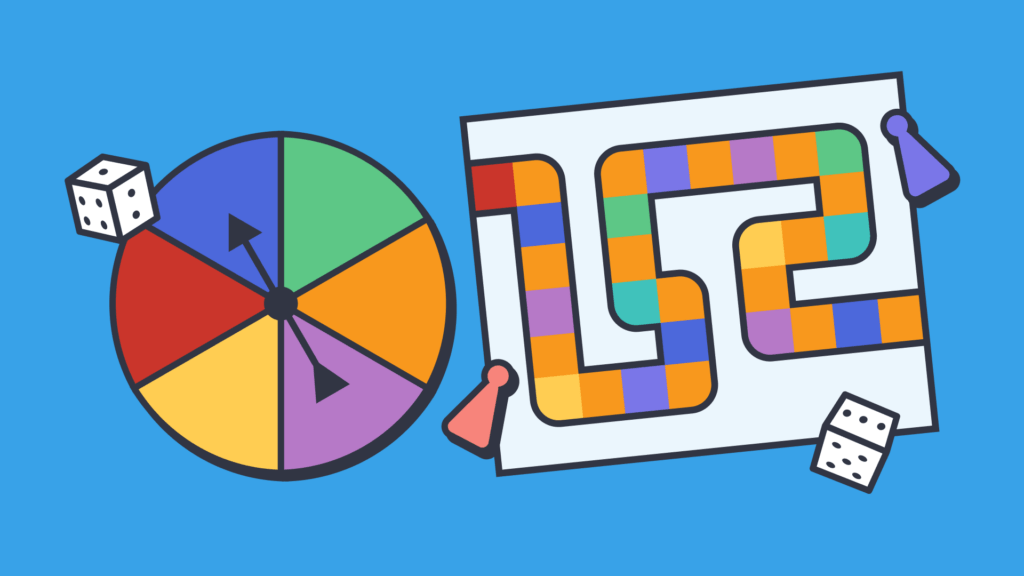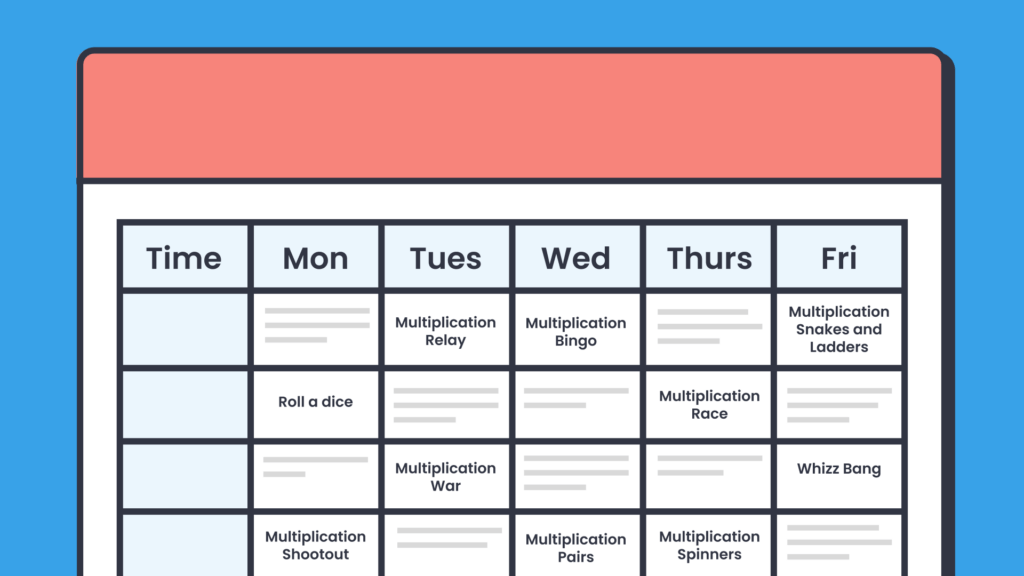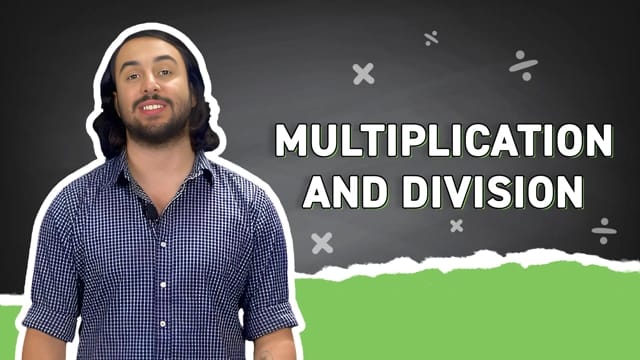10 Free multiplication games kids will love
In this guide
Why multiplication games are effective for learning
As an educator, you’ll know just how important it is that our students become confident, proficient and accurate with their multiplication tables knowledge.
Having a firm understanding of multiplication tables underpins so much of the math that our students will encounter throughout school and their lives, so it is vitally important that they are offered effective learning strategies while in elementary school!
Many studies show that children learn best through play, and in my experience, games can be incredibly effective in helping students to learn their multiplication tables quickly and effectively!
Through play, your students are more likely to want to participate, they’ll have a positive attitude, and will therefore develop their fluency and accuracy much more quickly.
Additionally, learning multiplication tables through playing games can reduce anxiety around math. I have encountered many students that hold themselves back from their learning because they don’t want to make a mistake, but this anxiety disappears whilst playing games, leading to better learning outcomes!
This blog will detail a variety of quick and easy games that you can set up for your students, most of which require little to no prep!

Classroom-friendly multiplication games that require no prep
We all know as educators that sometimes, you just need an activity that is going to be fun, engaging, and a great learning experience – that ideally requires little to no preparation!
I love to have a variety of these activities up my sleeve, ready to be used as starters, plenaries, or sometimes when you have a spare few minutes that need filling!
The kids LOVE a game, and you get to use this time to assess their multiplication knowledge in order to plan and prepare for future lessons!
1) Roll a dice
Put your kids in pairs, and give each of them a dice, ideally, a 12-sided dice, but if you don’t have one then an ordinary six-sided dice will be fine.
Students should roll their dice, one after the other, and then race to multiply the numbers together and write the product on a mini whiteboard.
The winner is the person with the most answers collected!
Variations
If you want your students to focus on multiplying a particular number, then could roll just one dice and then multiply the side it landed on by your chosen figure.
If you prefer a teamwork approach, students could work together to multiply the numbers as quickly as they can rather than racing against each other. (I find this can be more productive with younger students.)
2) Multiplication shootout
Stand your class in a circle, and pick two people to be in the center. They should stand a meter or so apart from each other and face away from each other. Then, you call out a multiplication problem, such as ‘7×5!’
The students should then race to jump to face each other, and call the answer out as quickly as they can whilst pointing at their opponent.
The quickest student stays in the center of the circle, and they get a new opponent.
Keep going until you have the final two students in the center of the circle.
Variations
For this game, I try to always pick opponents to go against each other that are somewhat matched in their abilities.
Some students may wish to observe rather than participate, and this is ok! They are still absorbing the questions and answers just by being in close proximity. Usually, after a few times playing, everybody wants to try anyway!
I sometimes keep a crown or two in my classroom, and the winners of the game can wear the crown for the rest of the day. This can be a great incentive for most learners – I’ve had kids practice for hours at home with their parents so they can win in the classroom!
3) Multiplication relay
For this game, you will need some number cards 1-12 for each group, but I figured most classrooms have these readily available, so I’ve included it here in the ‘no prep’ section!
Take your kids outside or into a sports hall, and set them into teams of four or five.
They should stand behind a cone at one end of the hall, and set up a hoop for each group at the other end.
In the hoop, place your number cards 1-12 for each group.
- The first student should run and get a card, then the second student should run and get a card.
- Then, as a team, they need to work out the product of those two numbers and write it on a whiteboard.
- As soon as they have written it correctly, the next player replaces those cards and picks a new one.
- Repeat this for as many rounds as you have time for, and the winning team are the ones with the most correct answers on their board.
4) Whizz Bang
This is one of my favorite circle games, as it requires so much concentration and the students get SO excited when they’re doing well!
Stand in a circle, and go around with each student simply saying a number. The trick is, if their number is a multiple of 3, instead of saying the number they should say ‘whizz’. If their number is a multiple of 5, they should say ‘bang.’ If it is a multiple of both, they should say ‘whizzbang’
So the game might sound like: “1, 2, whizz, 4, bang, whizz, 7, 8, whizz, bang, 1, whizz, 13, 14, whizzbang’ – and so on!
This is a great game that builds teamwork and camaraderie as a class, whilst also reinforcing important multiples knowledge!
5) Multiplication war with playing cards
Students should work in pairs, with a pack of playing cards.
They take it in turns to lay down a card, and then race to call out the product of the two numbers!
This is a great game to have ready for students who finish their work early for example, or perhaps if you have areas in your classroom, have this set up on a table in your math area!

DIY printable multiplication games for centers or homework
These games and activities can work really well with small groups playing, or you can even print enough copies for everybody to play at once, leaving you free to work with individuals who may need a bit of support!
6) Multiplication race
Create a game board with a starting point and a pathway leading to a finishing point. Each step of the path should be marked with a multiplication question.
Students should take it in turns to roll a dice, move their counter accordingly, and answer the question, if they get it wrong, they can either stay where they are or go back to the start!
The winner is the person who reaches the end first.
Variations – Sometimes I have spent a lesson with my older students where they make these game boards themselves!
They can get super creative and add in extra challenges or cards to pick up when they land on a certain square. These can then be saved to play with throughout the year!
7) Multiplication bingo
Print out a 5X5 grid with multiplication products in each space.
Then, call out a multiplication question, and students can cross off the product that is called out if it is on their board.
The winner can call ‘Bingo!’ if they cross out 5 in a row.
Variations – For a no-prep version of this game, have students create their own bingo boards on mini whiteboards!
8) Multiplication pairs
Print out a set of cards that show multiplication problems and their products.
Students can work in pairs or small groups, and should lay all the cards face down on the table.
Students then take it in turns to turn two over, They get to keep the pair if the question matches the product!
So, for example, if they turn over ‘2×6’ and ‘12’ they can keep those cards and take another turn. If not, they turn them back face down and it is the next player’s turn.
Variations – If you want a more active version of this game, you could hide all the cards around your playground and students then have to run around and find matching pairs, like a scavenger hunt!
9) Multiplication spinners
Create a spinner using a circle of card and a pencil.
Draw on the card so that the circle is split into equal segments. The more segments, the more numbers, so if you have 12 segments then students will need to know their 12 times tables!
In each segment, write a number.
Then, poke the pencil through the center so that the spinner sits like a skirt on the pencil.
Each student can create their own spinner, and then pair up to play!
Spin both spinners, and either race or take it in turns to find the product of the two numbers that the spinners land on!
In my experience, simply using something a little bit different like a spinner keeps kids engaged for longer!
10) Multiplication snakes and ladders
For this game, you will need a snakes and ladders board, and a set of flashcards showing different multiplication problems.
Players should take it in turns to roll the dice and move their counter on the board, but each time they land on a snake or a ladder, they should pick a card.
If they answer the card correctly, they can go up the ladder, or avoid going down the snake!
If they answer the card incorrectly, they must stay at the bottom of the ladder or go down the snake!

Tips for including more games in your schedule
You might be thinking, these games all sound great but my day is SO jam-packed that I don’t have time to fit any of these in! However, just by making some small changes to how you structure your day, you may find time to play more games with your students, increasing their enjoyment levels, giving their brains a break from formal learning, and allowing you more opportunities to review progress and attainment!
Game box for early finishers!
We all have those students in our class who seem to finish 20 minutes before everybody else!
Keep a box of laminated cards, playing cards, dice etc in the corner of your room, and challenge them to play some of the games listed above if they have finished all their learning!
This not only keeps them busy with meaningful activities, but it means you can continue to focus on supporting those in your class who need you at that time!
Use games as warm up activities
At the start of each lesson, dedicate 5 minutes to playing a simple no prep multiplication game.
It may seem like a waste of time and you need to get on with your lesson, but believe me, it will make such a positive difference in your students’ multiplication abilities that you’ll soon see its worth!
Incorporating games into your transition times
I don’t know about you, but sometimes I feel like it’s absolute chaos in my classroom when we are transitioning from one activity to the next!
Try setting up a circle game during transition time, so that when the kids have tidied their desks/finished their activity, they come and join the circle.
This can speed up those slow movers, and it means there’s something useful going on in that ‘dead’ time.
When you aim to include some of these fun, no prep multiplication games into your daily routine, you are supporting your students to develop their fluency with their multiplication tables. Additionally they are more likely to enjoy these games more than the repetition/rote like learning we were probably subjected to at school! Also, you are more likely to help your students develop a lifelong love of numbers, rather than becoming adults who ‘don’t like math!’
Next time you have a spare 5 minutes, why not try out one of these games, or maybe even prepare a printable ready for your whole class to do as an early morning activity! I really hope that these 10 easy and fun games will help you to incorporate more fun into your multiplication learning!

Ruth Litchfield
briefcase iconEducator & Education Content Creator
Ruth is an experienced primary school educator of over a decade, and an Educational Content Creator. She specialises in creating fun and engaging activities that require minimal resources and cover multiple curriculum areas.
Other posts
Want more content like this?
Subscribe for blog updates, monthly video releases, trending topics, and exclusive content delivered straight to your inbox.













